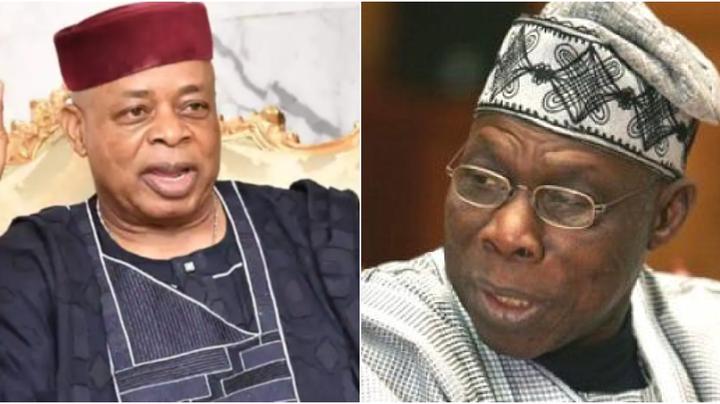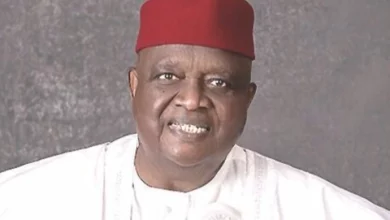TODAY IN HISTORY: Obasanjo Lost Third Term Bid After Senate Rejected The Bill Backing It

On May 16, 2006, the Nigerian Senate made a decisive move by rejecting a proposed constitutional amendment with the potential to grant the then President Olusegun Obasanjo a third term. This controversial proposal worsened existing regional, ethnic, and religious divides in Nigeria.
Amid cheers from opponents of the bill, the Senate President at that time, Ken Nnamani, declared that a voice vote had thwarted the measure introduced by Obasanjo’s allies. He affirmed, “The Senate has said clearly and eloquently that we should discontinue other proceedings on this amendment.”
The proposed amendment required a two-thirds majority in both Nigeria’s federal legislature and the 36 states houses of assemblies to pass, but those requirements were not met.
The outcome dealt a significant blow to the ambitions of Obasanjo and his supporters. Reacting to the development, an opposition lawmaker, Sule Yari-Gandi said, “Today Nigerians have spoken and they have defeated resoundingly the monster called third term”.
Although Obasanjo had not openly stated his intention to pursue a third term, he had expressed a desire to continue implementing wide-ranging reforms initiated since his initial election in 1999.
Those against the amendment alleged that National Assembly members had faced intense pressure, including bribery and blackmail, to support it. However, supporters of Obasanjo rejected these accusations and maintained that the pursuit of a third term did not threaten democracy, as Nigerians would ultimately decide their President through the ballot box.
The proposed amendment was part of a larger bill, and supporters of Obasanjo lamented that its rejection had undermined other crucial provisions. This broader measure included proposals for altering the distribution of Nigeria’s oil wealth, which constituted nearly 90 percent of its foreign earnings.
The controversy over term limits intensified existing divisions within Nigeria which has marked differences that usually create fear among its people. Many in the predominantly Muslim North had insisted that one of them should succeed Obasanjo who is a Christian from the South.
Following the failure of the bill to pass, Obasanjo later backed Umaru Musa Yar’Adua from the North to succeed him as President in 2007. However, Yar’Adua died a few years later paving the way for his Vice President from the South, Dr Goodluck Jonathan to become the President…..See More
I’ll Support Death Penalty For Corruption; Kill Anyone Who Steals N1trillion, Not N1m – Ndume




